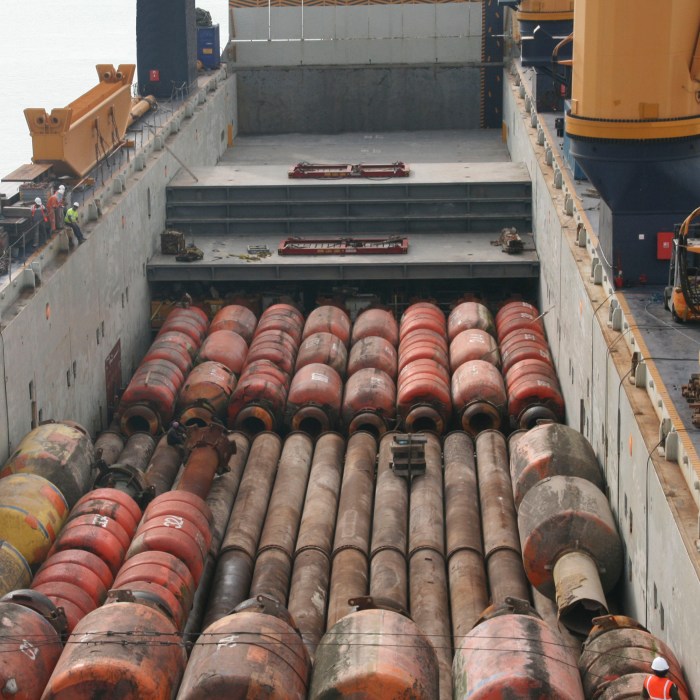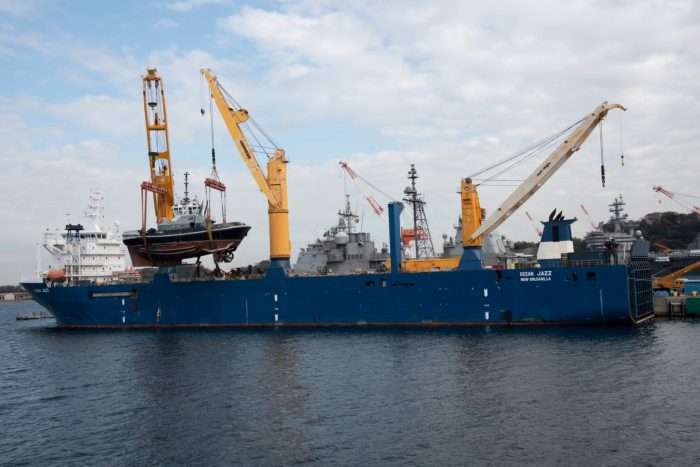Break of bulk ap human geography – Break of bulk in human geography is a complex and multifaceted process that involves the transfer of goods from one mode of transportation to another. This process can occur at various points along the supply chain, and it can have a significant impact on the efficiency and reliability of transportation networks.
In this article, we will explore the concept of break of bulk, examining its different types, the factors that influence its occurrence, and its role in global trade. We will also discuss the impact of break of bulk on transportation networks and the environmental implications of break of bulk operations.
Definition of Break of Bulk

Break of bulk, in the context of human geography, refers to the process of unloading cargo from one mode of transportation and loading it onto another. This process is necessary when the destination of the cargo is not directly accessible by the original mode of transportation.
Examples of break of bulk include:
- Unloading cargo from a ship and loading it onto a train
- Unloading cargo from a train and loading it onto a truck
- Unloading cargo from a truck and loading it onto a plane
Types of Break of Bulk
Transshipment
Transshipment is the process of unloading cargo from one ship and loading it onto another ship. This is typically done when the destination of the cargo is not directly accessible by the original ship.
Cross-docking
Cross-docking is the process of unloading cargo from one truck and loading it onto another truck without storing it in a warehouse. This is typically done when the cargo is time-sensitive or perishable.
Consolidation
Consolidation is the process of combining multiple small shipments into a single larger shipment. This is typically done to reduce transportation costs.
Factors Influencing Break of Bulk
Transportation costs
The cost of transportation is a major factor that influences the decision to break bulk. If the cost of transportation is high, it may be more economical to break bulk than to ship the cargo directly to its destination.
Distance
The distance between the origin and destination of the cargo is another factor that influences the decision to break bulk. If the distance is long, it may be more economical to break bulk than to ship the cargo directly to its destination.
Infrastructure, Break of bulk ap human geography
The availability of infrastructure, such as ports, railroads, and highways, can also influence the decision to break bulk. If the infrastructure is not adequate, it may be more difficult to break bulk than to ship the cargo directly to its destination.
Impact of Break of Bulk on Transportation Networks: Break Of Bulk Ap Human Geography
Efficiency
Break of bulk can affect the efficiency of transportation networks. If the process is not managed properly, it can lead to delays and disruptions.
Reliability
Break of bulk can also affect the reliability of transportation networks. If the process is not reliable, it can lead to lost or damaged cargo.
Role of Break of Bulk in Global Trade

Facilitate global trade
Break of bulk plays a vital role in facilitating global trade. It allows goods to be shipped from one part of the world to another, even if the destination is not directly accessible by the original mode of transportation.
Overcome geographical barriers
Break of bulk can also help to overcome geographical barriers. For example, it allows goods to be shipped from landlocked countries to coastal countries.
Reduce transportation costs
Break of bulk can also help to reduce transportation costs. By combining multiple small shipments into a single larger shipment, it is possible to reduce the cost per unit of cargo.
FAQ Corner
What is break of bulk?
Break of bulk is the process of transferring goods from one mode of transportation to another. This can occur at various points along the supply chain, such as when goods are unloaded from a ship and loaded onto a truck.
What are the different types of break of bulk?
There are three main types of break of bulk: transshipment, cross-docking, and consolidation. Transshipment involves the transfer of goods from one ship to another. Cross-docking involves the transfer of goods from one truck to another without being stored in a warehouse.
Consolidation involves the combining of multiple shipments into a single larger shipment.
What are the factors that influence the decision to break bulk?
The decision to break bulk is influenced by a number of factors, including transportation costs, distance, and infrastructure. Transportation costs are a major factor, as break of bulk can add to the cost of shipping goods. Distance is also a factor, as break of bulk is more likely to occur when goods are being shipped over long distances.